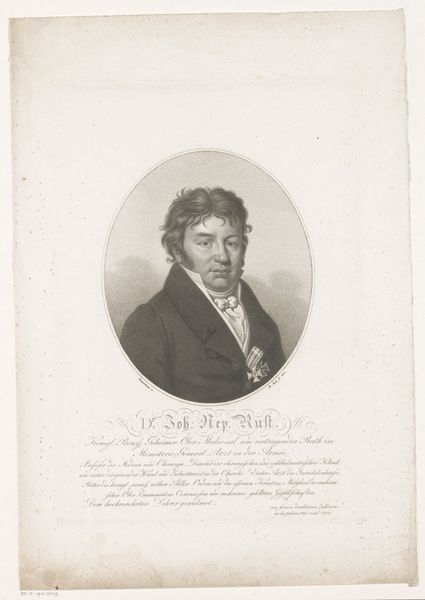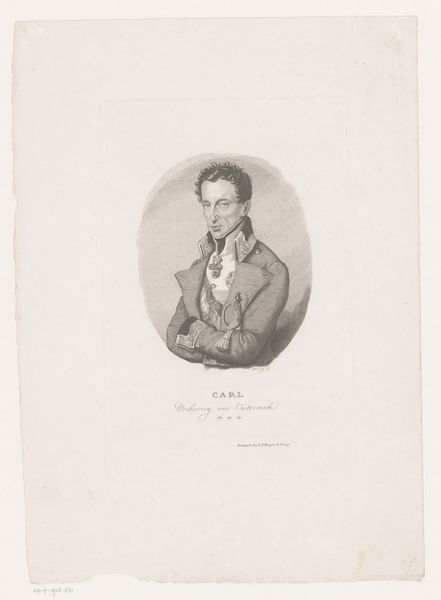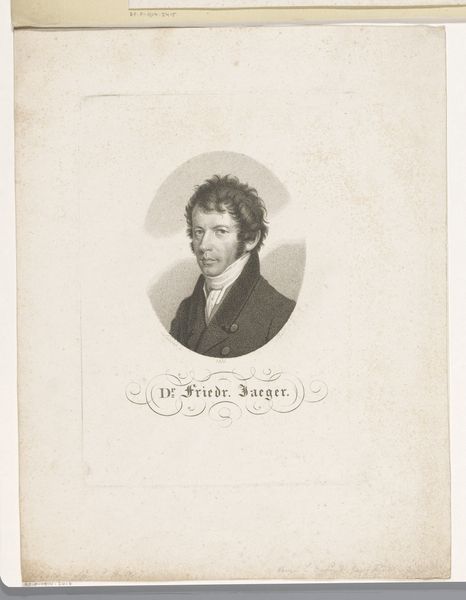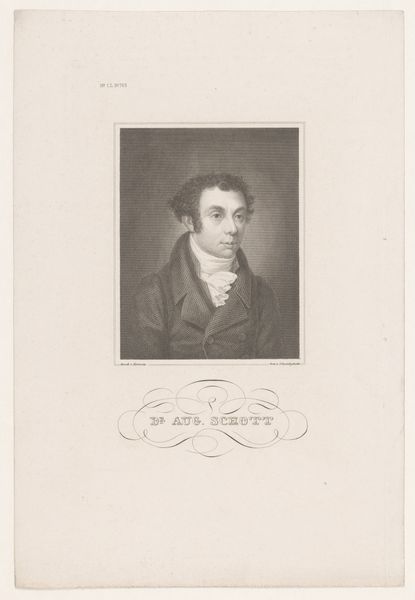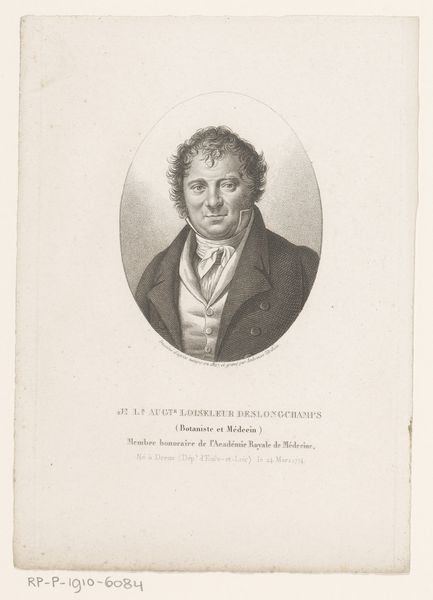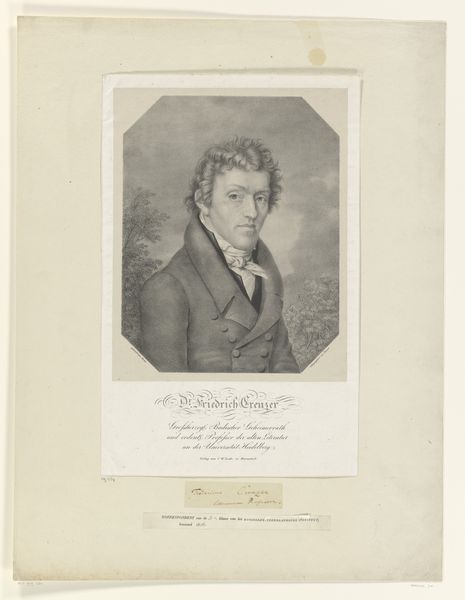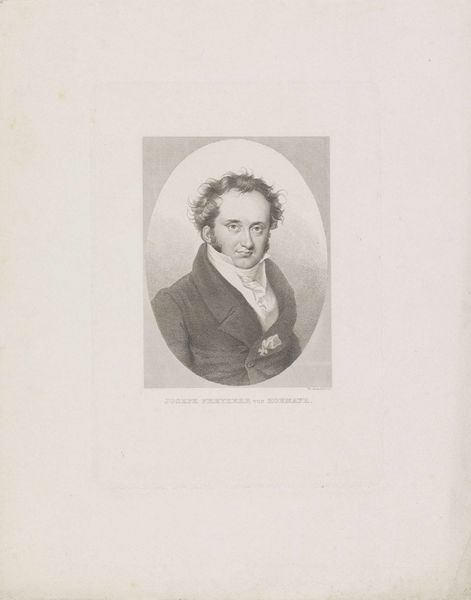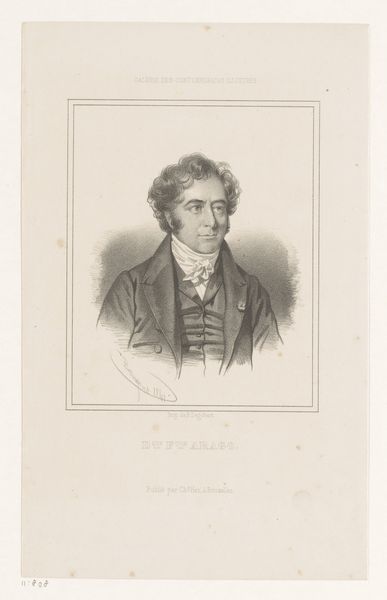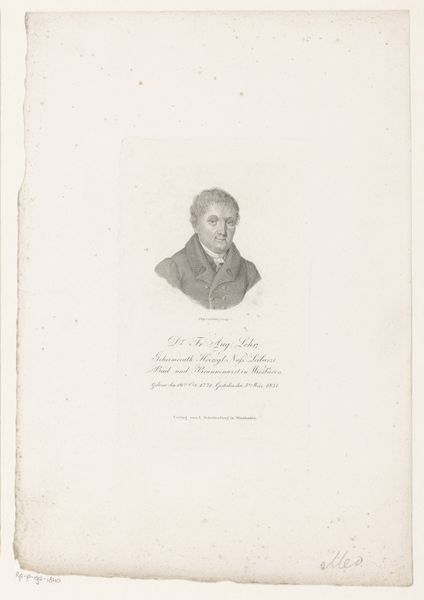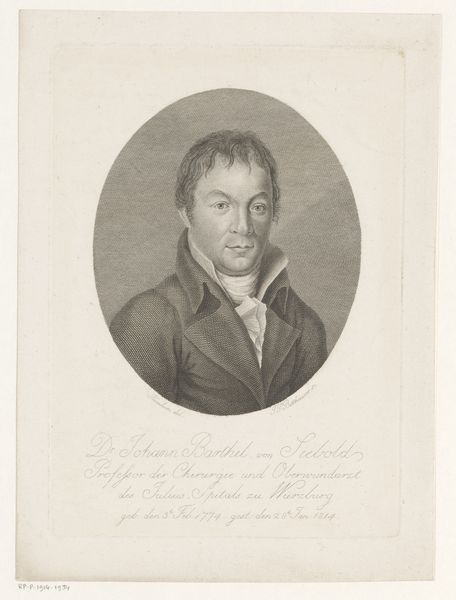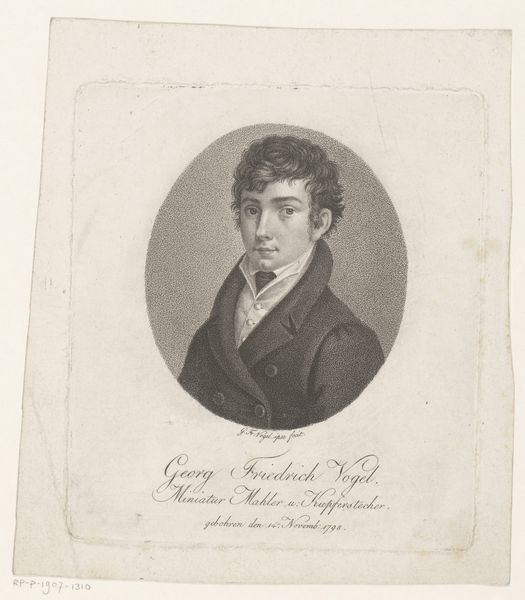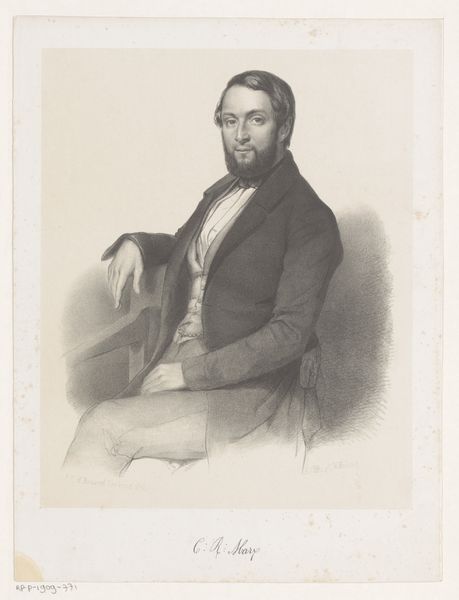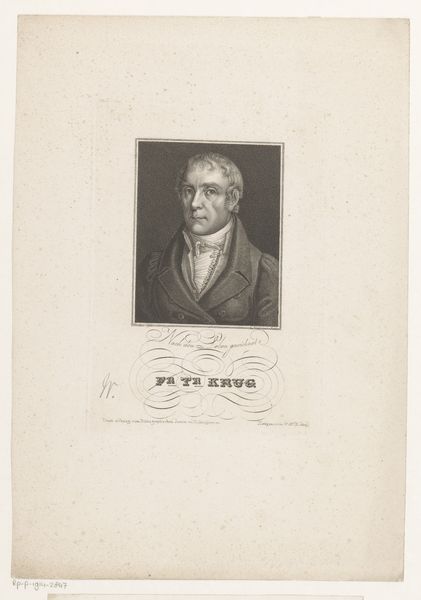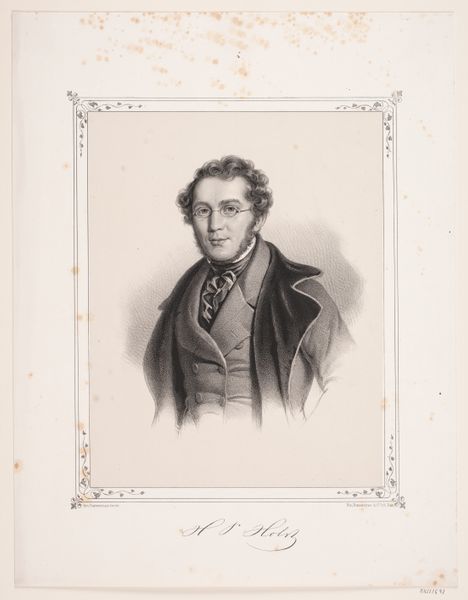
print, engraving
#
portrait
#
neoclacissism
# print
#
history-painting
#
engraving
Dimensions: height 199 mm, width 122 mm
Copyright: Rijks Museum: Open Domain
James Basire created this print of Philip H. Andre, the first lithographic printer in England, sometime around 1801. Lithography allowed artists to produce multiple original images, but it also created a new kind of industrial worker with the skills to operate the printing press. The print emphasizes Andre’s professional status and the claim that lithography was a new technology in England. Basire was a well-known engraver whose work reproduced architectural views and portraits, so his choice to depict Andre as a genteel character helps place this new technology within familiar social and cultural conventions. How does the claim that Andre is the “first” relate to his identity as an immigrant or foreign worker? To understand the print's significance, it is crucial to consider its historical context, the development of print culture, and the industrialization of the arts in the late 18th and early 19th centuries.
Comments
No comments
Be the first to comment and join the conversation on the ultimate creative platform.
